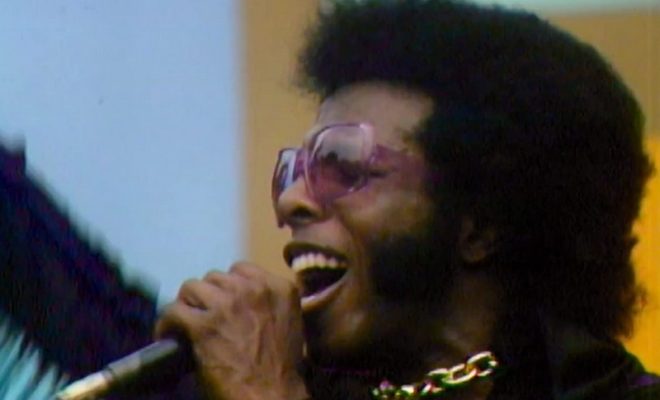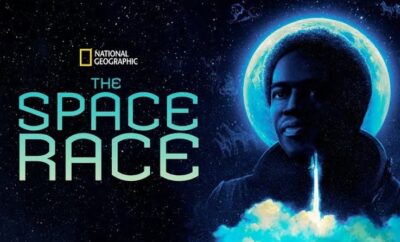
Movie Reviews
Summer of Soul (…Or, When The Revolution Could Not Be Televised)
By: Jennifer Vintzileos
When we think back to 1969 the most profound moments that happened were Apollo 11 landing on the moon and the Woodstock Festival. Yet there was another movement in place and the Harlem Cultural Festival hosted by Tony Lawrence was leading the charge as a series of concerts from June 24, 1969 to August 24, 1969—and then forgotten. After unearthing footage from over fifty years ago, Summer of Soul (…Or, When The Revolution Could Not Be Televised) utilizes the never-before-seen video of the Harlem Cultural Festival and brings not only great music to the forefront but the cultural shift that was taking place in the Black and Hispanic communities.
Director Questlove (Ahmir Khalib Thompson) opens the documentary with actor and producer Musa Jackson, asking him if he remembers the Harlem Cultural Festival that ran. With a wistful look in his eye, the camera immediately cuts to footage from the festival itself—in what appears to be a “sea of black people” at Mt. Morris Park in Harlem. Kicking off the video was a young, bright musician named Stevie Wonder, the crowd erupting in an energy that would resonate throughout each performance that took the stage. After a long, bitter battle over Civil Rights, the Black community viewed the festival in Harlem as a celebration of their heritage and the fight for more progress. Musical acts such as The 5th Dimension and Sly And The Family Stone showed how music, even within the community, was ready to evolve and merge black and white music into a new sound (Sly even had two white members in his band, drummer Gregg Errico and Saxophonist Gerald L. Martini). Yet every act was met with grand applause and a crowd eager to embrace the growth.
But the festival was about more than just the acts—there were bigger events at play. Harlem was becoming a melting pot of culture with the introduction of the Nuyorican culture (New York Puerto Rican) and a community that saw their heritage as something to be showcased, not white-washed. Even the Apollo 11 moon landing on July 20, 1969 wasn’t as vital as listening to Gladys Knight & the Pips. Festival goer Roger Parris recalls that the moon landing didn’t mean as much as the heroin epidemic that the community was facing—something Parris would refer to as the “plague on the black community.” The shift was felt with every note and lyric, from Ray Barretto to Mongo Santamaria and Mavis Staples joining Mahalia Jackson on a heartfelt rendition of “Precious Lord, Take My Hand,” a favorite of the late Dr. Martin Luther King Jr. And in the end the footage lay dormant—until now.
Questlove is a man of many talents, in front of and behind the camera. Summer of Soul proudly captures the emotions and soul of the black community through music at the height of their revolution. Every performance vivid and grabbing to the point your music collection may require some hits to the wallet. And the commentary from festival attendees to the musicians themselves fills in the gaps. From The 5th Dimension members Billy Davis Jr. and Marilyn McCoo explaining how they came to the decision to record “Age of Aquarius” to Gregg Errico having apprehension as to how the crowd would take Sly And The Family Stone. Mavis Staples positively gushing on joining Mahalia Jackson on stage to Stevie Wonder making his own mission to promote change after feeling the shift during the festival—their stories colored in the already vibrant footage and remind us that the fight still rages on but at least it has one hell of a soundtrack to back it.
At the end of Summer of Soul it is clear that Musa Jackson remembers the festival, even though that memory feels so distant now. Wiping away a stray tear, Jackson said, “You know, it’s funny. You put memories away and you don’t realize—something you don’t know if they’re even real. It’s almost confirmation that I knew it’s real.” And in that last scene Jackson recalls “how beautiful it was.”
Summer of Soul (…Or, When The Revolution Could Not Be Televised) is now available to watch on Hulu.




You must be logged in to post a comment Login